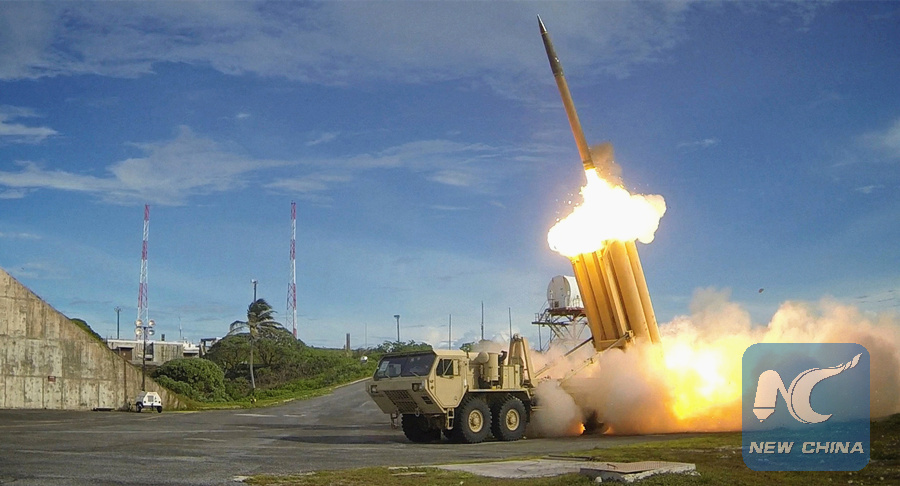
A Terminal High Altitude Area Defense (THAAD) interceptor is launched during a successful intercept test, in this undated handout photo provided by the U.S. Department of Defense.
MOSCOW, May 5 (Xinhua) -- Russia believes an extension of the New Strategic Arms Reduction Treaty (START) should be prioritized, Russian Deputy Foreign Minister Sergei Ryabkov said Sunday.
"I think that as a priority, we and our colleagues from the United States should focus on the extension of the New START signed in 2010," Ryabkov was quoted by Sputnik news agency as saying.
"It is necessary to solve several problems related to the artificial removal from the (missile) count by Washington of a large part of its strategic carriers," Ryabkov said.
On Friday, U.S. President Donald Trump said that he would soon start talks about a new nuclear arms control deal with Russia.
The New START agreement was signed between the United States and Russia in 2010 and went into effect the following year. It envisages the two countries halving the number of strategic nuclear missile launchers by Feb. 5, 2018.
The treaty is expected to last until 2021 with a possible extension for another five years, something Moscow supports.

